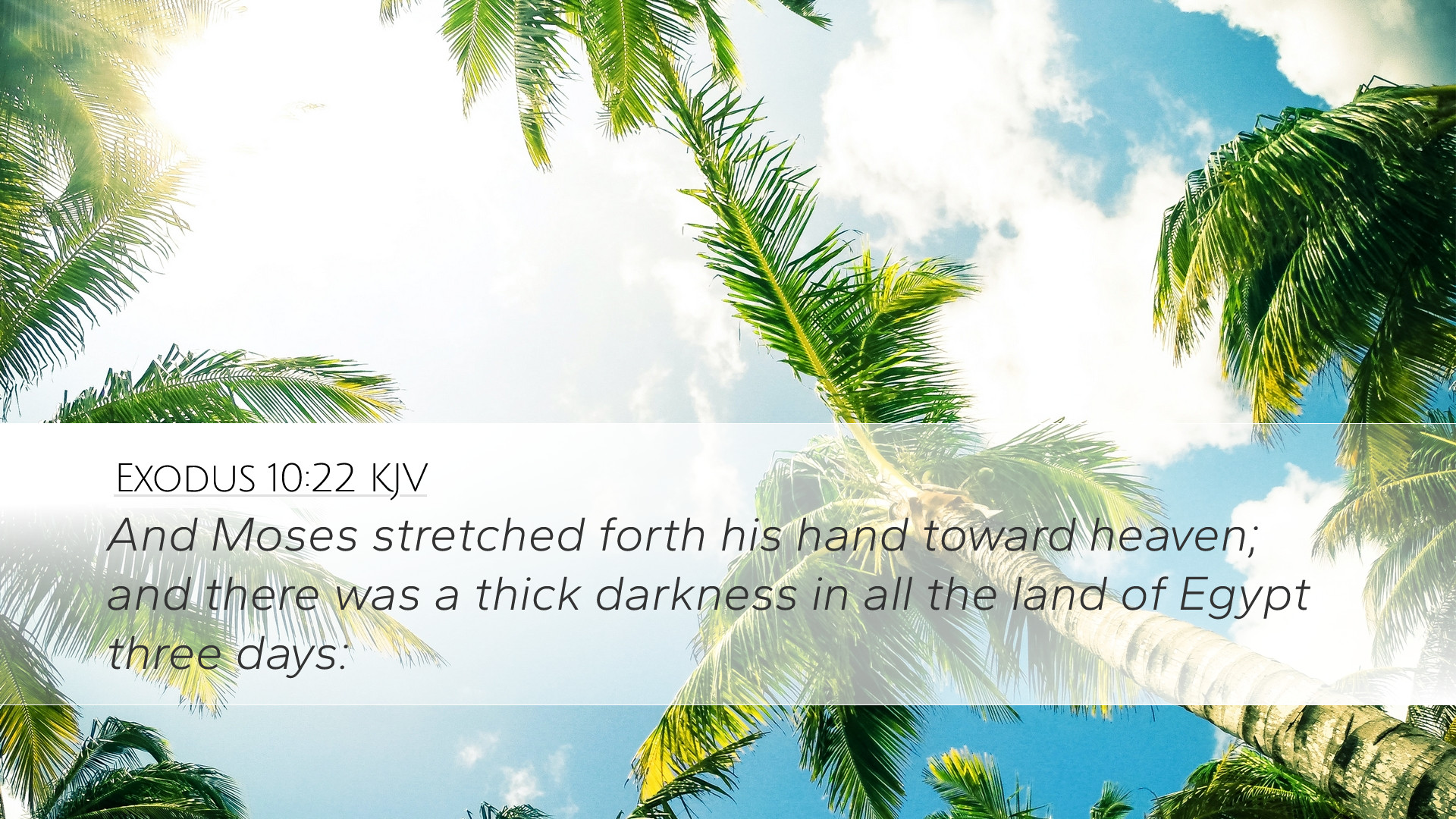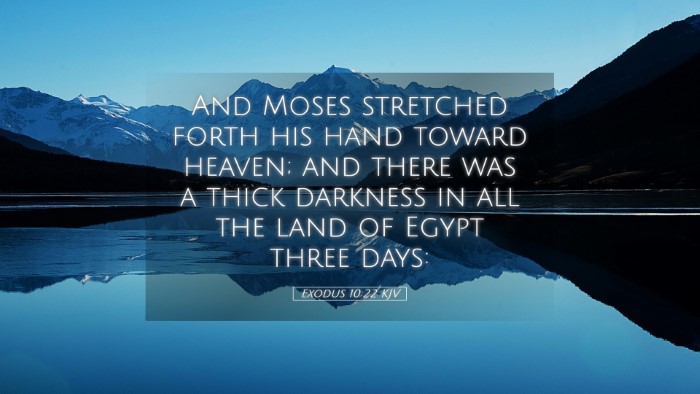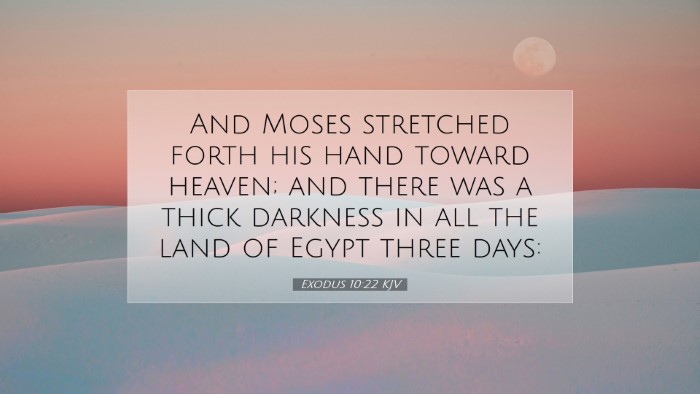Commentary on Exodus 10:22
Verse Context and Significance
Exodus 10:22 states, "And Moses stretched forth his hand toward heaven, and there was a thick darkness in all the land of Egypt three days." This verse occurs during the narrative of the plagues God inflicted upon Egypt as a demonstration of His power and a plea for Pharaoh to release the Israelites from bondage. The ninth plague, which is described in this passage, serves as a critical moment in the biblical drama of liberation.
Insights from Public Domain Commentaries
Matthew Henry's Commentary
Matthew Henry emphasizes the importance of the darkness as not merely a physical phenomenon but a sign of God's judgment against Egypt. He notes that this plague was not only a physical trial but also a spiritual one, as it represented the moral and spiritual darkness of Egypt, steeped in idolatry and sin.
Henry elucidates that this darkness was palpable, which underscores its severity. He likens it to the spiritual state of those who reject God, emphasizing that living in darkness is a metaphor for living apart from God’s light. The duration of the plague—three days—suggests a complete absence of light, further reinforcing the totality of their judgment.
Albert Barnes' Notes on the Bible
Albert Barnes offers a detailed examination of the nature of this darkness, suggesting that it could symbolize the divine displeasure against the Egyptian gods, who were believed to control the sun and light. He connects the darkness of the plague to discussions around the sovereignty of God over creation.
Barnes points out the psychological impact on the Egyptians, as darkness would heighten their fear and discomfort, leading them to reflect on their actions against Israel. This plague serves to demonstrate God’s control over not only nature but the spiritual realm, as the Egyptians were faced with a force they could neither explain nor resist.
Adam Clarke's Commentary
Adam Clarke provides a linguistic examination of the term used for "thick darkness," asserting that it conveys a sense of overwhelming dread. He cites historical accounts of the Egyptian belief in a sun god, challenging the credibility of their deities by showcasing God's power in darkening the land.
Clarke highlights the absence of light as a powerful metaphor for despair, implying that God can withdraw His presence as a form of punishment. He emphasizes the spiritual implication that this darkness represents the distance between God and those who persist in rebellion, illustrating the consequences of disobedience against the Creator.
Theological Implications
The ninth plague of darkness raises profound theological implications regarding God's nature and His relationship with humanity. The physical darkness signifies spiritual blindness and invites readers to reflect on their own lives. Just as Egypt was engulfed in darkness due to their obstinacy, we too must examine our responses to divine instruction.
God's Sovereignty and Judgment
This passage exhibits God's absolute sovereignty over creation. The darkness serves as a poignant reminder that God can impose judgment in transformative ways, both in the natural world and the moral landscape. Such judgments are not arbitrary; rather, they serve a greater purpose of correction and drawing humanity back to Himself.
The Contrast of Light and Dark
The biblical metaphor of light versus darkness is prevalent throughout Scripture. Darkness in this context represents despair, ignorance, and separation from God. In contrast, believers are called to be "children of light," with Jesus declaring that He is the light of the world. This passage serves as a stark contrast between the fate of the Egyptians versus the Israelites, who experienced light amid the darkness.
Practical Applications
-
Encouragement for Faith Leaders: Pastors can draw parallels from this passage to encourage congregations about the importance of seeking God’s presence and light in the midst of personal or communal struggles.
-
Reflection for Personal Growth: Individuals are challenged to assess areas in their lives that may be shrouded in darkness, considering how they can invite God's light into those spaces.
-
Teaching Opportunities: Educators can use this narrative to teach about the severity of ignoring God's commandments and the consequences that follow.
Conclusion
Exodus 10:22 offers rich commentary on the themes of judgment, sovereignty, and the struggle between light and darkness. Coupling insights from Matthew Henry, Albert Barnes, and Adam Clarke enhances our understanding of not just the historical context but also the lasting implications for faith and practice today. As leaders, students, and scholars reflect on this passage, the underlying message remains clear: to dwell in the light of God's truth is to live in freedom, whereas embracing darkness leads to spiritual despair and separation from His grace.


